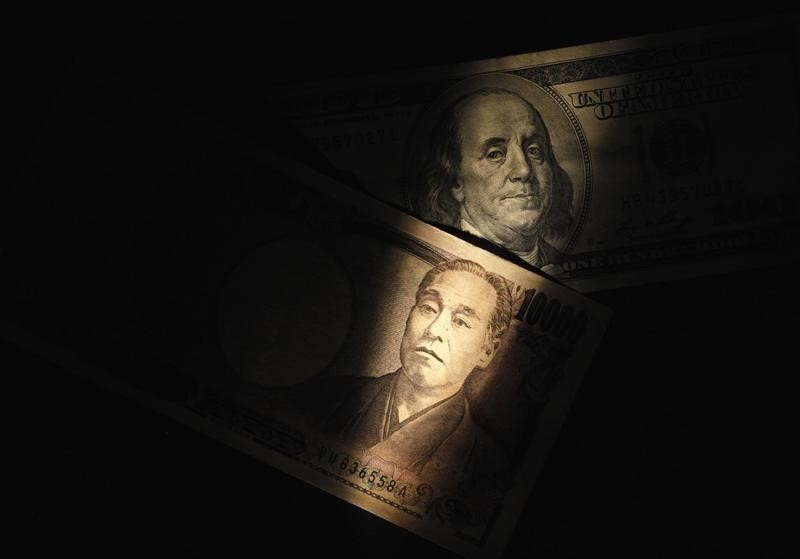(Recasts throughout; changes dateline, previous LONDON)
By Kate Duguid
NEW YORK, Aug 30 (Reuters) - The U.S. dollar index was flat
on Friday morning, with the offshore Chinese yuan headed toward
its biggest monthly decline in 25 years as the two countries
prepared for the implementation of new retaliatory tariffs on
Sunday.
The index .DXY was 0.02% lower at 98.483, closing the
month virtually unchanged after having been whipped around by
trade headlines. Against the dollar, the offshore yuan CNH=
was 0.2% weaker at 7.157, set for a 3.6% fall in August, it's
biggest monthly drop since 1994.
An additional 5% tariff on $125 billion of goods from China
is slated to kick in on Sunday, affecting consumer items from
smart speakers to sneakers. Investors fear the intensifying
trade dispute could lead the U.S. economy into recession.
But on Friday, trade fears were subdued after the two
countries on Thursday discussed upcoming face-to-face
negotiations in September and China declined to comment on
whether it would respond in kind to President Donald Trump's
latest round of tariffs.
The U.S. dollar has remained afloat amidst the trade war.
"Regardless of what the Trump team wants for the buck, it
will continue to rise as long as the global economy sinks. That
is a natural function of currency markets to pull money back
into the U.S. when the global economy is reeling. Capital flows
are mobile, and the primary source of USD demand is not
foreigners - it's U.S. investors cutting exposure outside the
U.S.," said Mark McCormick (NYSE:MKC), global head of foreign exchange
strategy at TD Securities.
Also supporting the dollar was a report on Friday that U.S.
consumer spending increased solidly in July as households bought
a range of goods and services. But while that may allay some
recession fears, the strong pace of consumption is unlikely to
be sustained amid tepid income gains. The Japanese yen was last up 0.34% and is on track for its
biggest monthly gain in three months, as safe-haven assets have
been buoyed by the U.S.-China conflict. The gains were partly
fueled by a global rally in government debt, with yields in
major developed markets pushing deeper into negative territory.
The "trade war thus far caused lower rates, not recession,"
wrote Bank of America Merrill Lynch (NYSE:BAC) strategists.
Elsewhere, the pound GBP= stabilized despite the growing
probability that Britain will exit the European Union on Oct. 31
without a deal.
The Canadian dollar CAD= strengthened against its U.S.
counterpart on Friday after data showing stronger-than-expected
GDP growth, but analysts doubted the Bank of Canada would become
more optimistic about the economy's outlook at next week's
policy announcement.
